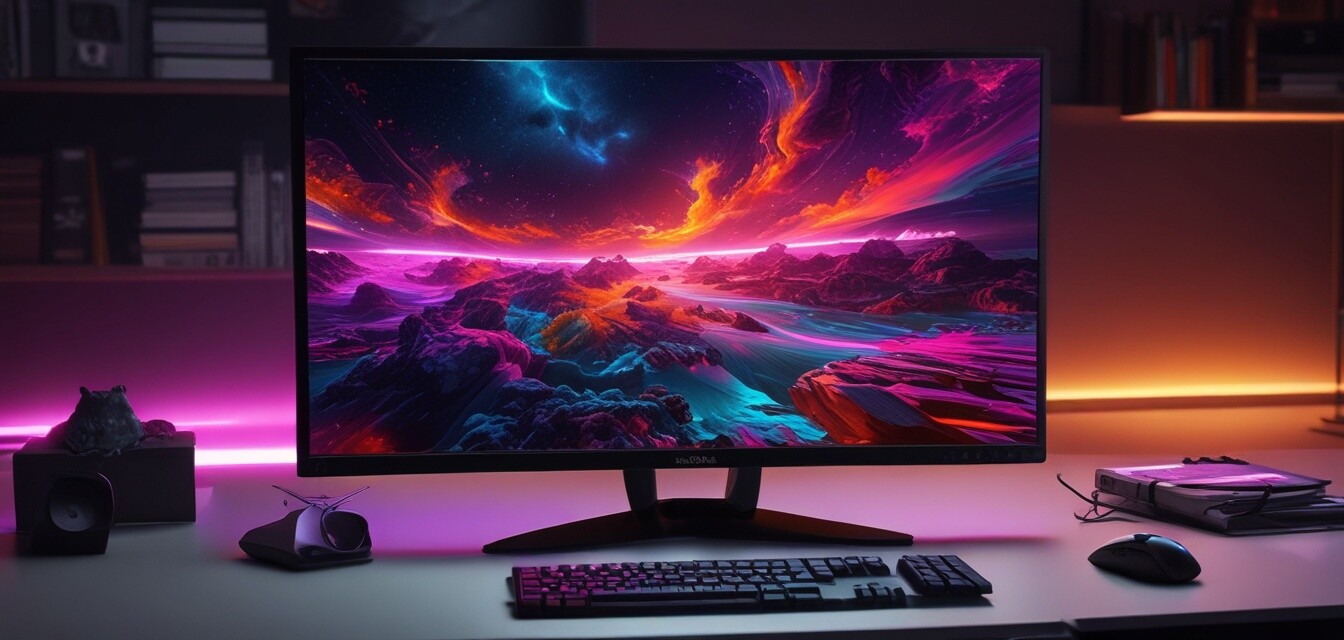
How to Set Optimal Color Profiles on Your OLED Monitor
Key Takeaways
- Understand the importance of color profiles for enhanced visuals.
- Identify the most recommended color settings for gaming.
- Know the step-by-step process to adjust color profiles on your OLED monitor.
- Explore various calibration tools to achieve peak performance.
Choosing the right color profile on your OLED gaming monitor can drastically enhance your gaming experiences and visual quality. With vibrant images and deep blacks, OLED technology is perfect for gamers when configured correctly. This article provides step-by-step tips on configuring color profiles to achieve the best picture quality and gaming visuals.
Why Color Profiles Matter
Color profiles are essential systems that help in translating the color representation of an image on your screen accurately. The right color profiles will ensure that the colors you see on your screen are as true to life as possible. This is especially important for gamers who benefit from high color accuracy to immerse themselves fully in gaming worlds.
Benefits of Optimal Color Profiles
- Improved color accuracy
- Better brightness and contrast levels
- Enhanced gaming immersion
- Reduction in eye strain
Steps to Set Optimal Color Profiles
Setting optimal color profiles on your OLED monitor involves a few steps. Here’s a simple guide to help you:
- Access the Monitor Settings: Use the joystick or navigation buttons on your monitor to access the on-screen display (OSD) menu.
- Find the Color Settings: Navigate to the 'Picture' or 'Color' settings within the OSD menu.
- Select Your Color Profile: Choose from available profiles such as sRGB, Adobe RGB, or Custom. Each serves different purposes; for most gaming situations, sRGB is ideal.
Adjusting Brightness and Contrast
After selecting a color profile, it’s also important to adjust brightness and contrast for better visuals:
| Setting | Recommended Level |
|---|---|
| Brightness | 50-80% |
| Contrast | 70-90% |
Using Calibration Tools for Better Results
Consider using calibration tools for optimal color accuracy. These tools can help you adjust various parameters more accurately.
Popular Calibration Tools
- Spyder5 Elite
- X-Rite i1Display Pro
- Calibrite ColorChecker Display
Common Issues and Troubleshooting
Sometimes, users encounter issues when setting color profiles. Here’s how to address them:
Pros
- Enhanced image quality and realism.
- Customizable profiles tailored to personal preferences.
- Improved visibility in darker games.
Cons
- Requires time and patience for perfect calibration.
- Calibration tools can be costly.
- Incorrect settings can lead to poor image quality.
Conclusion
Setting the optimal color profiles on your OLED gaming monitor enhances your gaming visuals significantly. By understanding your monitor’s capabilities, adjusting settings correctly, and using calibration tools, you can achieve the best possible picture quality. Ensuring all settings align with your visual preferences will ultimately lead to a much more enjoyable gaming experience.
Tips for Beginners
- Start with the default settings before making extensive adjustments.
- If possible, use a calibration tool for professional results.
- Don’t forget to adjust color settings for different games according to genre.
For more insights on finding the right monitor, check out our Buying Guides, or explore other areas of interest like 4K OLED Gaming Monitors and Product Comparisons.